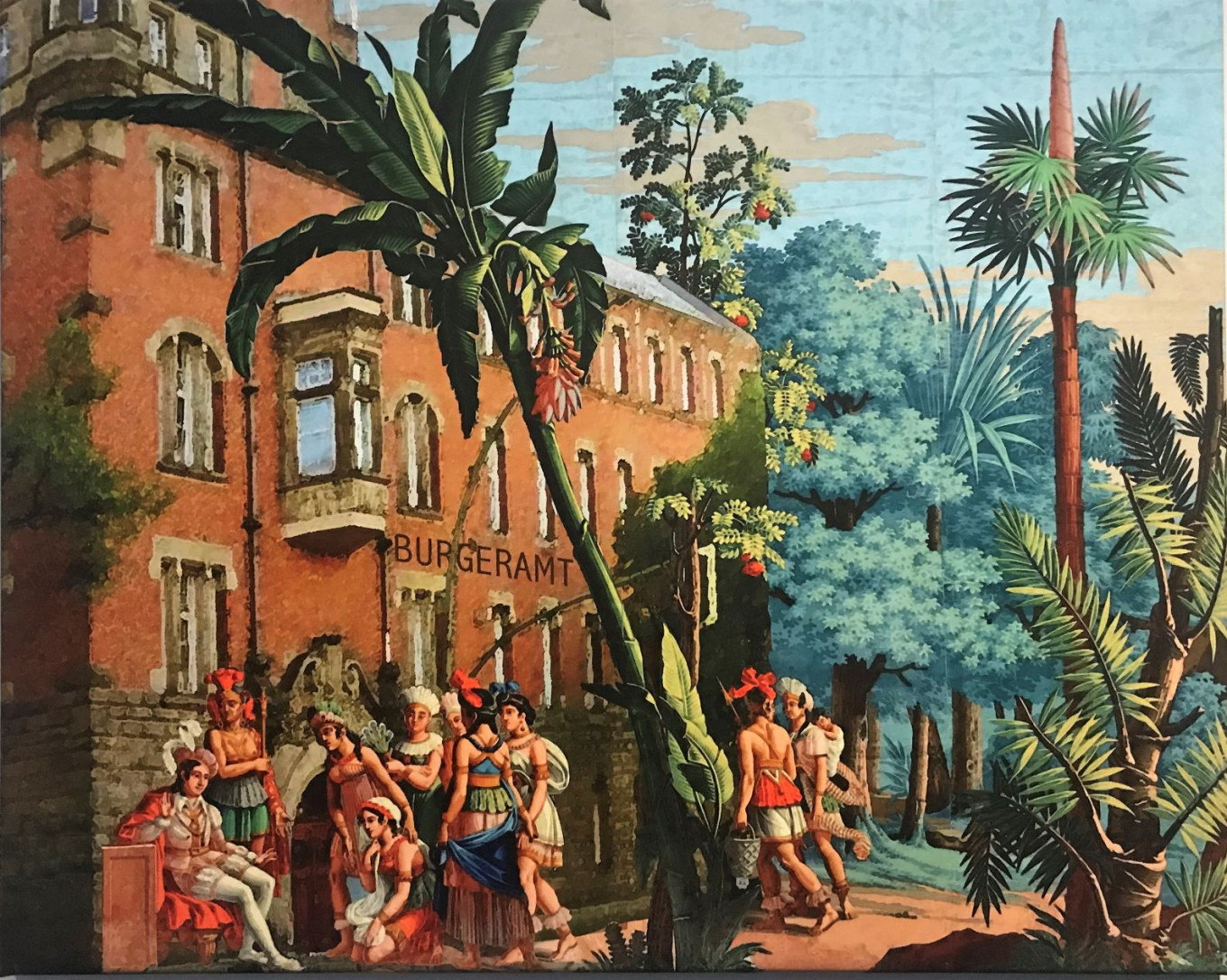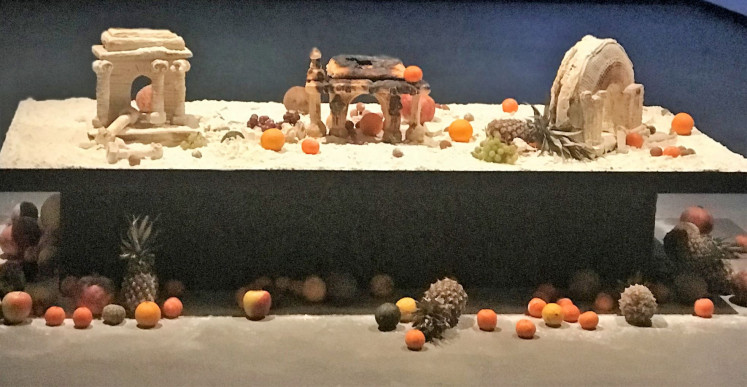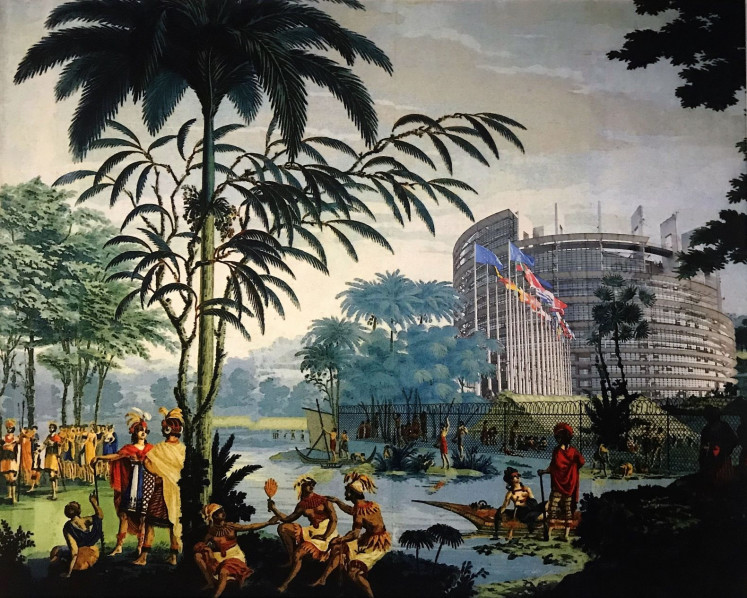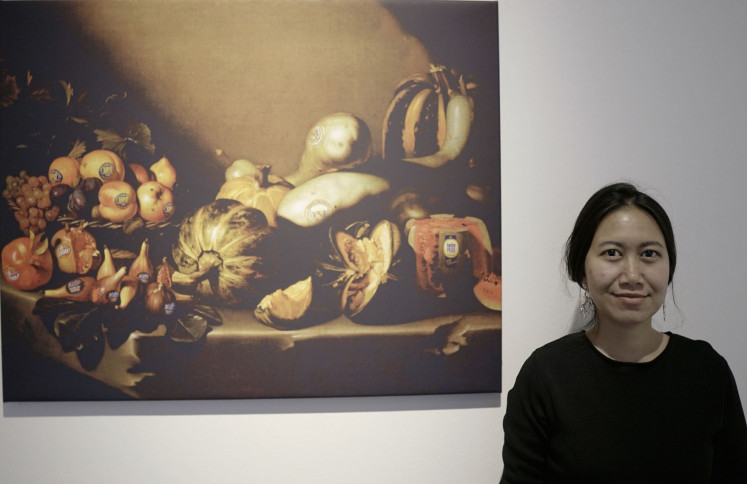Popular Reads
Top Results
Can't find what you're looking for?
View all search resultsPopular Reads
Top Results
Can't find what you're looking for?
View all search resultsOn migrants, refugees: Elia Nurvista's food for thought in Berlin exhibition
After having spent almost a year in Berlin, Indonesian artist Elia Nurvista looks back at highlights and challenges during her residency and talks about her exhibition project, in which she reflects on the perception of immigrants and refugees.
Change text size
Gift Premium Articles
to Anyone
E
lia Nurvista has always been passionate about food. The artist and social researcher from Yogyakarta loves to cook and would get excited simply by reading a recipe, before preparing the meal and sharing it with friends.
“During my free time, I used to browse the internet and look for food from other cultures, and I slowly began to understand how complicated food can be in terms of production, distribution and consumption,” she says.
It was at this point that Elia began to think about the meaning of food in a sociopolitical, economic and cultural context, and to translate this thought process into her artworks, for which she uses different media.
Elia is about to wrap up her one-year artist-in-residency program as the KfW Foundation grant holder in the International Studio Program at Kuenstlerhaus Bethanien in Berlin.
Bethanien is an international cultural center in Germany’s capital that is dedicated to the advancement of contemporary visual arts, with the aim to establish a lively dialogue between artists from various backgrounds and disciplines and the public at large.
Elia’s exhibition, called "Fruechtlinge", a combination of the German words fluechtlinge (refugee) and fruechte (fruit), highlights her reflections on migrants and refugees.
Subtle irony: With a playful approach and a hint of irony, Elia depicts the difference between the way Europeans look at fruit and refugees. (Katrin Figge/-)It is not the first time she has tackled the issue of migration in her artworks, which revolve around the need for belonging and cultural ownership, and she found herself drawn to the subject matter again upon arriving in Berlin last year.
“I came across some fruits that are not easily found in Indonesia, like pomegranates and figs,” she says, adding that she immediately labeled them “exotic”, while historically, it is well known that these fruits were brought from other countries many years ago through trading, imperialism and colonialism.
This initial thought led Elia to the theme of her exhibition, which revolves around the question: Why are “exotic” fruits regarded as luxury items, while people from the same countries who come here as refugees are often rejected as foreigners who don’t belong?
In Germany, an ongoing debate about immigrants and refugees has raised tempers and divided opinions, but Elia has decided to approach this topic in a playful way – and not without a hint of irony.
“I downloaded Old Master still life paintings from the internet and added brand labels and quality seals to them, and also turned historical pictures of the ‘noble savage’ into collages by adding contemporary features,” Elia explains.
Contradiction: Elia Nurvista's work describes the paradox of Europe presenting itself as open and welcoming, while at the same time, implementing a strict selection process for immigrants and refugees. (Katrin Figge/-)In addition, she created a number of sculptures modeled after the gates, portals and archways found on euro banknotes, portraying the continent’s openness and embeddedness in the international community.
“In connection with the sculptures, I created a video about humans and fruit and their relation to bureaucracy,” she says, adding that selection procedures stand in stark contrast to Europe’s outward-looking and seemingly welcoming character.
To gain a better insight, Elia attended many events, workshops, exhibitions and social gatherings that helped her dive deeper into the topic of immigrants and refugees. She also took into account her own experience and position as a foreigner. Although she is quick to add that she is aware she enjoys privileges that others can’t even dream about, it was nevertheless not easy for her to gain a foothold in the city.
“I don’t speak German, so just registering my address or buying a SIM card for my phone was a bit of a struggle,” Elia recalls. “But as soon as I learned a little bit more about how to live in the city, I enjoyed myself so much. There are so many interesting places to see, and I met a lot of new people. I also fell in love with Kreuzberg, the neighborhood I lived in.”
Old masters reborn. Elia Nurvista poses in front of one of her artworks, for which she used old still life paintings and added brand labels and quality seals to them. (Courtesy of Kyoco Taniyama/-)When her residency ends, Elia plans to return to Yogyakarta and continue her artwork, both personally as an artist and with her interdisciplinary food study group Bakudapan, which she founded in 2015. She can’t wait to share her German experience with her friends and colleagues and will bring back many good memories.
Her time in Berlin, however, also helps her look at her home country from a different perspective.
“Usually, Indonesians think that everything from Europe is better, be it the way of living, or – talking about my field – art education,” Elia says. “This changed when I had the chance to live here myself. I realized we have different ways to deal with life. We have our own philosophies, knowledge and manners, both practically and emotionally – one is not better than the other. They are simply different.” (ste)
Your Opinion Matters
Share your experiences, suggestions, and any issues you've encountered on The Jakarta Post. We're here to listen.
Thank you
Thank you for sharing your thoughts. We appreciate your feedback.














